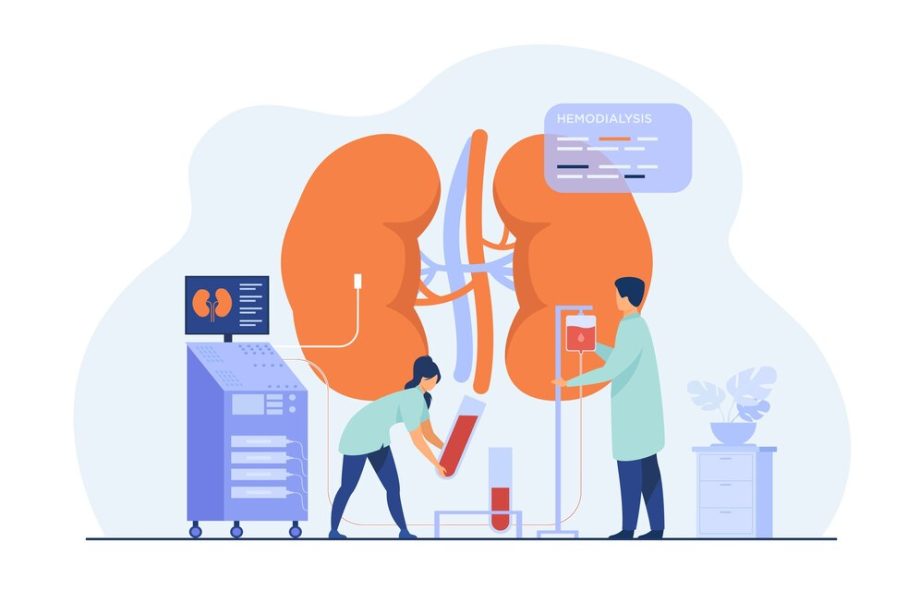Your kidneys are two hardworking organs that operate behind the scenes day after day. They cleanse your blood, remove waste, control fluid levels, and help control blood pressure. But what happens when something goes awry? How do you recognize when to stop seeing your primary care physician and see a kidney specialist, or a nephrologist instead?
Everyone waits too long, most likely because kidney problems do not present early enough with signs and symptoms. This article will provide you with some sense of when it is time to see a nephrologist and how getting there first can be a big assistance.
What Does a Nephrologist Do?
A nephrologist is a doctor of the kidneys who cares for the kidneys. They treat and diagnose kidney illness. Their work involves:
- Treating chronic kidney disease
- Treat kidney-targeting high blood pressure
- Treatment of kidney infection and inflammation
- Treatment of kidney stones or electrolyte disturbances
- Helping dialysis preparation or transplant patients
They work with other doctors to help your kidneys work well and continue to work well.
The Early Signs Are Easy to Miss
Kidneys are tough and will keep working even if they are partly damaged. As a result, most people aren’t aware of anything until kidney function is decreased. Still, below are some warning signs which may mean trouble:
- Swelling in your ankles, face, or legs
- Foamy or black urine
- Urination which is increased or decreased
- Excessive tiredness
- Muscle cramping
- Nausea or loss of appetite
- Insomnia
If you find that you have any of these, especially more than one, it’s best to speak with your physician. They can have you visit a nephrologist if they decide that there are indications of kidney issues.
Who Is at Greater Risk for Kidney Issues?
Some people are more likely to develop kidney disease than others. If you are in one of these categories, you may need to see a nephrologist sooner:
- People with diabetes
Diabetes is a leading cause of kidney harm. Years of high blood sugar can damage the tiny blood vessels that bring blood to your kidneys.
- People with high blood pressure
Uncontrolled blood pressure puts a strain on your kidneys and can lead to permanent damage.
- People with a family history of kidney disease
If your siblings or parents have kidney disease, you could be at increased risk.
- People with autoimmune diseases
Diseases like lupus or vasculitis can lead to kidney scarring.
- People who are on some medicines regularly
Some pain drugs and some antibiotics are hard on your kidneys when you use them over and over or in high doses.
- People who get repeated urinary tract infections or kidney stones
These can cause scarring or blockages that hurt kidney function.
When Your Doctor Refers You to a Nephrologist
You don’t need to decide by yourself. In the majority of cases, your main doctor will see something different in your test or symptoms and refer you. The following are some reasons why they will refer you:
- High creatinine or low glomerular filtration rate (GFR)
These are test results that your kidneys aren’t functioning properly.
- Protein or blood in the urine
This is a warning that your kidneys may be leaking stuff they shouldn’t.
- Quick loss of kidney function
If your kidney function declines rapidly, an expert immediately is required.
- Difficult-to-treat high blood pressure
Especially if it won’t get better with normal drugs.
Multiple stones in the kidneys
- Recurring kidney stones
To determine the cause and avoid them in the future.
What Does a Nephrologist Visit Entail?
Your initial visit is typically all about getting the overall picture. The nephrologist will:
- Inquire about your medical history in detail
- Take your blood pressure and other vital signs
- Check test results if your regular doctor has sent any in
- Order additional lab tests or scans as needed
- Create a plan to maintain healthy kidneys
If your kidney function is already compromised, they will also consider slowing the damage, changing your diet, or changing your medications.
Why Early Visits Matter
Early referrals to a nephrologist will avoid serious issues. The majority of kidney ailments can be postponed or even avoided if addressed at the appropriate time. Delaying for an extended period will lead to:
- Permanent loss
- Sudden loss of kidneys
- Having to receive an emergency dialysis
- Having to receive a kidney transplant earlier
It is not just to keep you off dialysis. Early treatment will also enhance general health because kidney disease causes heart disease, hypertension, and stroke.
What If You Already Are in Advanced Stages?
Even if your kidney disease has advanced beyond a certain point, it doesn’t necessarily mean that coming to see a nephrologist won’t be the best decision. They will help you with:
- Manage symptoms
- Delays dialysis need
- Choose the optimal technique to do dialysis if needed
- Prepare you for kidney transplant
- Help your mental and emotional health
You will also be supported by a team that might include a dietitian, nurse, or social worker. It’s not just the treatment of disease, but making you live well in spite of it.
Final Thoughts
You must see a nephrologist if you start experiencing symptoms of kidney problems or if your doctor detects something wrong in your tests. People with diabetes, high blood pressure, or family history of kidney problems must be on guard and make an initial appointment.
Taking care of your kidneys is like taking care of your entire body. Don’t wait until you are sick. Get tested early, listen to your body, and ask questions. Seeking out an appointment with a Nephrologist Chermside in a timely manner could be the difference between good health and bad.
 :
https://uk.pinterest.com/
:
https://uk.pinterest.com/












